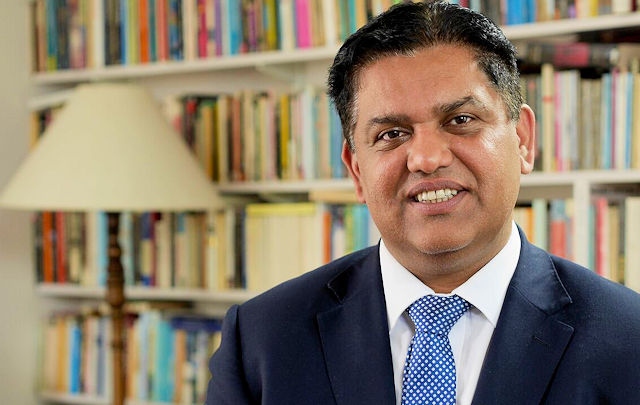‘Time to be mindful of our young people’, says Dr Zahid Chauhan
Date published: 24 August 2018

Dr Zahid Chauhan
Starting a new school or college, leaving home to attend university and even the impact of the darkening weather, September can be a stressful month for some of us, particularly young people.
So concerned is the Royal College of General Practitioners with the precarious and sometimes perilous nature of children’s mental health, that they have just created a new educational tool for doctors to spot the signs of self-harm and even suicidal thoughts.
One of its key findings is that we need to identify vulnerable groups including looked-after children and those who have been victims of bullying. It then recommends that we work on a personal action plan to help these young people and keep them safe from harm.
Youngsters in Rochdale are fortunate that they have specialist support available – including the Healthy Minds initiative whose team of experts include psychiatrists, nurses, social workers and psychologists (see http://healthyyoungmindspennine.nhs.uk/).
Of course the really big challenge is to get young people to seek help in the first place. And this is where we as adults come in. I appreciate that there are all kinds of conditions discussed in the press these days, from Obsessive Compulsive Disorder to acute anxiety, but there are some common tell-tale signs that a young person may be suffering with a mental health condition.
The NHS has a fantastic online guide called the Moodzone, which highlights symptoms, treatments and recommendations for parents worried about their children. Tips on spotting depression (including increasing isolation and disturbed sleep patterns) are listed there, as are the significant symptoms of self-harm, addiction or teenage eating disorders (now common in boys as well as girls) so visit https://www.nhs.uk/conditions/stress-anxiety-depression/worried-about-your-teenager/
Moodzone offers priceless advice on approaching young people about mental health issues and recommends total honesty when speaking with them, a promise to listen and listen well and crucially, letting them choose where to seek help – whether that be a GP or school counsellor.
Over the last few years there has been a marked change in the way society views mental health issues, a positive breaking of taboos and the removal of stigma. Earlier this year we saw the Duke of Cambridge launch the Heads Together programme to give employers a better understanding of mental health issues. I hope for a day where the phrase “mental health” doesn’t even exist and illnesses such as psychosis are viewed in the same way as viruses and infections requiring treatment and compassion.
The stresses of today’s world have compounded mental health problems and made them more visible. But they should never be viewed as risible. We must continue talking and raising awareness, particularly with our children and especially at times like this of anxiety and change.
Do you have a story for us?
Let us know by emailing news@rochdaleonline.co.uk
All contact will be treated in confidence.
Most Viewed News Stories
- 1Royton haulage firm fined after Rochdale dad went to work and didn’t come home
- 2Six men arrested in Rochdale child exploitation investigation
- 3Suspended council candidate was ‘politically naive’ for appearing in George Galloway video, leader...
- 4Rochdale church to host Camerados public living room
- 530 years of the GEM Appeal, a Rochdale-founded charity that has raised millions and changed the...
To contact the Rochdale Online news desk, email news@rochdaleonline.co.uk or visit our news submission page.
To get the latest news on your desktop or mobile, follow Rochdale Online on Twitter and Facebook.


